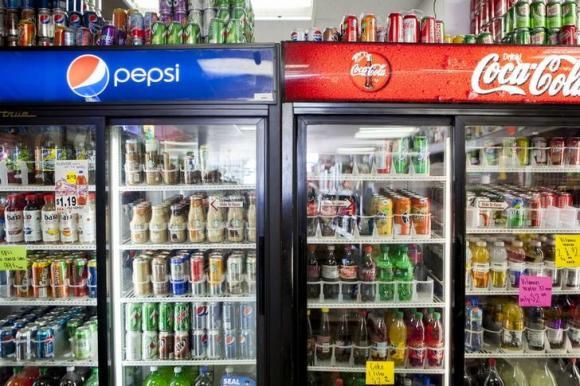Sugar-Sweetened Drinks Linked To Early Menstruation

Girls who frequently consumed sugar-sweetened beverages (SSB) had their menarche at an earlier age, according to new findings. The study, which was recently published in the Oxford journal Human Reproduction, explains how drinking sugary drinks triggered earlier onset of menstrual period, regardless of the girls’ body mass index (BMI) and other factors taken into account. Early menstruation has been identified as one of the risk factors of breast cancer in later life.
For this study, data on 5,583 girls ranging from 9 to 14 years old between 1996 and 2001 were analysed. None of the participants had started their menstrual periods upon joining the study. After the given time frame, 3 percent (159 girls) had started their menarche. The girls were interviewed on their diet, particularly the amount of sweetened, carbonated or caffeinated beverages they took on a regular basis.
The research team were able to determine the correlation between frequent SSB consumption and the girls’ age for menarche. The first menstrual cycle of girls who consumed more than 1.5 daily servings of sweetened drinks was 2.7 months earlier than the period of those who consumed lesser amounts of sugary drinks in a week. Sugar-sweetened drinks are examples of high glycemic foods that increase insulin amounts in the body. Insulin concentrations induce increased amounts of sex hormones, which when altered and circulated in the body result to earlier onset of menstrual periods.
Based on the findings, the authors concluded that although the girls had a 2.7 month-decrease in age at menarche, it slightly increases breast cancer risk. Breast cancer studies say that women who had their first menstrual cycle before the age of 12 have higher breast cancer risk by 20 percent. Early development of the breasts at puberty lengthens their exposure to elements that altogether increase cancer risk.
Though SSB consumption has a slight impact on breast cancer risk, it is still important to prevent this from being a risk factor. Participants in this research were part of the Growing Up Today Study, an observation on 16,875 children by the Nurses' Health Study II.
Early menstruation among girls has been observed in highly industrialised countries for some time. It could be occurring in other developed countries as well. Professor Karin Michels (ScD, PhD) of Harvard Medical School and lead author of the research, stated that this particular research supports the public health effort in reducing consumption of sugary drinks because of health issues associated with excessive intake.
To send feedback about the content, email: j.panganiban@ibtimes.com.au





















